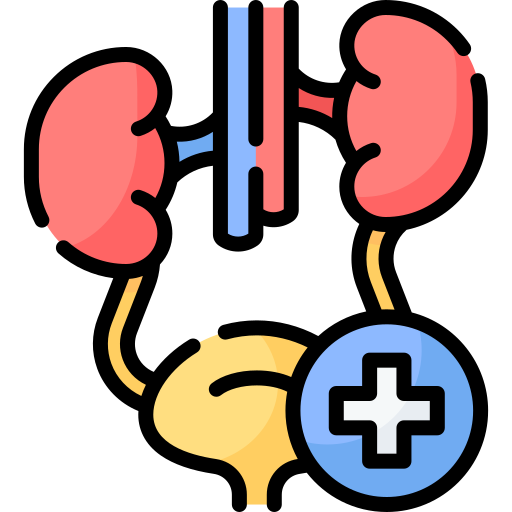
Urology
The Urology Department at Sharda Care - Healthcity is committed to providing exceptional and specialized Urological care that meets international standards. Our department offers a comprehensive range of Diagnostics and Treatments for Urological Cancers, Urinary Tract Infections, Renal Diseases, Reconstructive Urology Surgery, Laparoscopic Urology, Erectile Dysfunction, Stone Disease, Paediatric Urology, Prostate Diseases, Paediatric Renal Transplants, and Andrology. Our Urologists are skilled in the latest Laparoscopic and Laser Technologies, ensuring that our patients receive the most advanced care available.
We deliver compassionate and multidisciplinary care to patients with various Urological Disorders, including Cancers, Incontinence, Impotence, Bladder Issues, and Deformities. Our highly specialized team of Urologists provides personalized care to patients of all Ages and Genders. At Sharda Care - Healthcity, we prioritize human skill and technology, utilizing innovative technologies to perform minimally invasive procedures that optimize patient recovery.
In addition to expert consultation and treatment, we offer counselling and education to patients and their families, ensuring they fully understand their conditions, particularly in cases of transplants. We aim to empower patients with knowledge and support throughout their journey to better health.
Book an AppointmentLooking for an Expert
Sharda Care The Healthcity is home to some of the eminent Doctors in the world.
Book an AppointmentSub-Specialities
Andrology
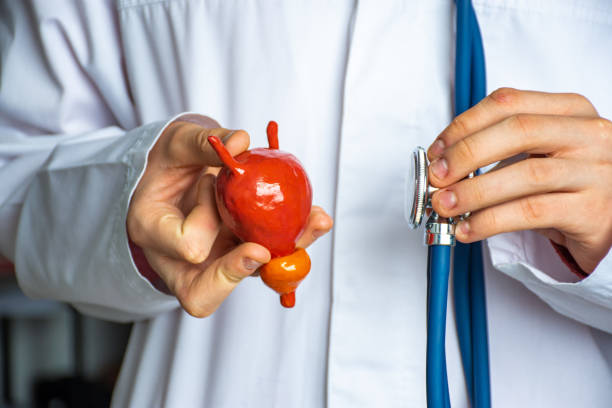
Andrology, a specialized branch of Urology, focuses on addressing Men's Health concerns, including issues related to Fertility, Sexual Function, and Reproductive Health. At Sharda Care - Healthcity , our Andrology Department offers comprehensive treatment options for men's health problems, all under one roof. Our team of highly experienced Andrologists is equipped with advanced medical technologies, ensuring the delivery of top-quality care with a patient-centred approach. We prioritize personalized treatment plans, encompassing counselling and therapy, tailored to the needs of men across all age groups.
Some of the common conditions treated by our Andrologists at Sharda Care - Healthcity include:
- Erectile Dysfunction
- Male Infertility
- Premature Ejaculation
- Varicocele
- Androgen Deficiency
- Low Testosterone Levels
- Anejaculation
- Retrograde Ejaculation
- Peyronie’s Disease
Top of Form Treatments
Male Infertility
- Male infertility plays a significant role in up to 40% of infertility cases in couples. Various factors can contribute to Male Infertility, including low Sperm Count, Absence of Sperm in Semen (Azoospermia), Sperm Abnormalities such as Reduced Motility or Abnormal Shape, Infections in the Sperm Tract, Hormonal Imbalances, Erectile Dysfunction, and Varicoceles. Additionally, Male Sexual Dysfunction may also impact Fertility, even when Sperm Parameters are normal.
Management of Male Infertility involves:
- Thorough evaluation and treatment of Male-Specific causes of Infertility.
- Addressing Azoospermia, Low Sperm Counts, or Sperm Abnormalities.
- Sperm Retrieval Techniques.
- Penile Vibrostimulation for challenging Semen sample collection.
- Surgical Sperm Retrieval procedures, such as Testicular Sperm Aspiration (TESA) or Microscopic Testicular Sperm Extraction (Micro TESE).
- Microsurgical Varicocelectomy for Varicocele correction.
- Counselling and Treatment for Unconsummated Marriage or Male Sexual Dysfunction.
- Utilization of Advanced Genetic Testing and Genetic Counselling to assess underlying Genetic factors contributing to Infertility.
Male Sexual Dysfunction
- Male Sexual Dysfunction can stem from a combination of Physical and Psychological factors. It encompasses various conditions such as erectile Dysfunction, Premature Ejaculation, Retrograde Ejaculation, Penile Curvature, Anejaculation, Pain during Ejaculation, and Reduced Libido (Low Sex Drive).
Causes of Male Sexual Dysfunction may include:
- Cardiovascular Disease.
- Chronic Illnesses.
- Low Testosterone Levels.
- Performance-related Concerns or Anxiety.
- Nerve Damage.
- Spinal Cord Diseases, Post-Surgery, or Trauma.
- Depression or Anxiety Disorders.
- Marital or Relationship issues.
- Work-related Stress or Anxiety.
- Past Sexual Trauma.
- Lifestyle factors such as Smoking, Tobacco use, and Alcohol Consumption.
Chronic Testicular Pain and Pelvic Pain
- Persistent Testicular Pain can be Distressing for Men and may be caused by various factors such as Infection, Nerve Injury, Varicocele, Testicular Torsion, or even Cancer. When Conventional Treatments Fail to provide relief, a thorough evaluation is necessary to determine the underlying cause. In some cases, a Spermatic Cord Block procedure may be utilized to assess improvement levels. Successful cases may benefit from microsurgical denervation of the Spermatic Cord, a specialized procedure performed under an operating microscope with high success rates.
- Chronic Pelvic Pain, also known as Chronic Prostatitis, presents symptoms like Perineal discomfort, Pain during Ejaculation, and Burning Sensations during Urination. These symptoms significantly impact the quality of life and can lead to Stress, Anxiety, and Depression. Our Andrologists conduct comprehensive evaluations, including a review of symptoms and medical history, to identify the root cause and recommend the most appropriate treatment plan.
Low Testosterone Levels
- Male Hypogonadism, characterized by Low Testosterone Levels, occurs when the Male Reproductive Glands fail to produce sufficient Testosterone. This condition can arise from various factors such as Injury, Chemotherapy, Pituitary Gland Tumours, Chronic Illnesses, Obesity, or Medication side effects.
- Symptoms of Low Testosterone Levels, or Hypogonadism, include decreased Libido, Fatigue, difficulty concentrating, Weight Gain, and Diminished Muscle Mass. Infertility or Erectile Dysfunction may also accompany Hypogonadism, requiring specialized care from Andrologists. Young men with Hypogonadism can receive successful treatment to improve Sperm Counts. Addressing Testosterone deficiency is crucial for overall health, including Bone and Cardiovascular Health, as well as maintaining optimal erectile function and Sperm quality.
Kidney Transplant
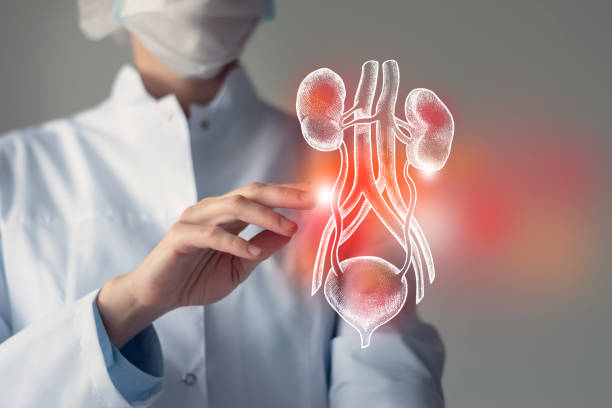
At Sharda Care - Healthcity , we prioritize compassionate care for Kidney Transplant Patients facing End-Stage Kidney failure. Our dedicated Transplant team is committed to providing personalized and efficient treatment, replacing one or both Kidneys with a healthy Organ from a deceased or living Donor. We understand the importance of addressing not only the medical needs of our patients but also providing support and guidance to their families throughout the transplant journey.
Our Transplant department is dedicated to providing exceptional patient care, educational programs, and conducting advanced research. Our Surgeons Utilize innovative technologies to successfully treat conditions such as Kidney failure, which can arise from various factors including high Blood Pressure, Polycystic Kidney Disease, Uncontrolled Diabetes Mellitus, Glomerulonephritis, and severe Anatomical Urinary tract problems.
The Kidney Transplant process involves several steps, beginning with a thorough Pre-Transplant workup to assess the patient's fitness. This includes a range of tests such as Blood Tests for Human Leukocyte Antigen (HLA) and Blood group determination, Viral markers, Biochemistry Analysis, Radiology evaluation, Tumor markers, CT-Scans, Angiograms, ECHO tests, and Endoscopies. Our multidisciplinary team of specialists, including Cardiologists, Gastroenterologists, Hepatologists, Pulmonologists, Dentists, Anaesthetists, Physiotherapists, Psychiatrists, and Dietitians, evaluates each patient comprehensively.
Following the completion of the Kidney Transplantation process, our team ensures meticulous post-operative care, monitoring patients continuously until they achieve complete recovery. We prioritize the timely delivery of medications and provide all necessary support for a swift and successful recovery. At Sharda Care -Healthcity, our mission is to facilitate the best possible outcomes for our patients throughout their transplant journey.
Paediatric Urology
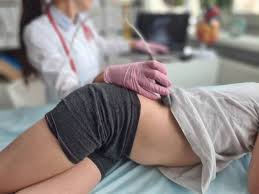
The Paediatric Urology Department at Sharda Care - Healthcity stands at the forefront of excellence in Paediatric Urological care, offering specialized expertise in the management of complex congenital and acquired Urological conditions in Children.
Our dedicated team of Paediatric Urologists, supported by state-of-the-art technology and advanced Surgical Techniques, delivers personalized treatment tailored to the unique needs of each Child. Collaborating closely with experts in Paediatric Radiology and Orthopaedic Surgery, we have pioneered the development of innovative 3D MRI-guided imaging tools. These cutting-edge technologies enhance safety and precision during major Surgeries for Newborns, ensuring optimal outcomes with minimal risk.
We offer expert care for various conditions, including but not limited to:
- Bladder Exstrophy
- Cloacal Anomalies
- Hernias
- Hydronephrosis (Kidney Dilation, Detected Prenatally or in Childhood)
- Hypospadias (Urethral opening located on the underside of the Penis)
- Intersex conditions (Abnormal development of Genital Organs)
- Kidney Stones
- Neurogenic Bladder caused by Spinal Cord Lesions, such as Myelomeningocele
- Re-do Urology Surgeries
- Rhabdomyosarcoma of the Genitourinary system
- Testicular Tumours
- Undescended Testicles
- Ureteropelvic junction obstruction (Blockage of Urine flow from the Kidneys)
- Vesicoureteral Reflux (Urine back up from the Bladder to the Kidneys)
- Wilms Tumor and other Kidney Tumours in Children
At Sharda Care- Healthcity, we are dedicated to providing unparalleled care for Children with Urological Conditions, empowering them to lead healthy and fulfilling lives. Our multidisciplinary approach, innovative technologies, and unwavering commitment to excellence make us a trusted destination for Paediatric Urology care.
Reconstructive Urology
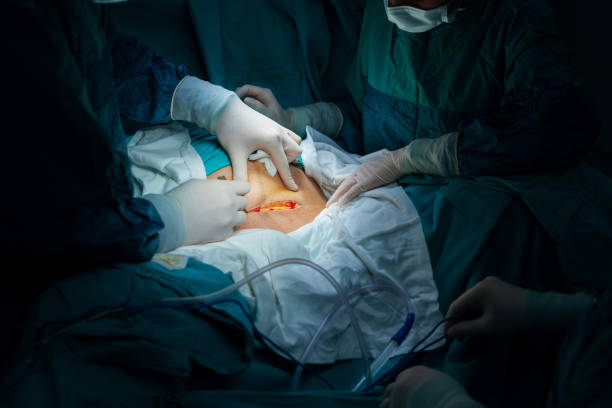
The Reconstructive Urology Unit at Sharda Care - Healthcity is dedicated to providing exceptional care and innovative solutions for a wide range of complex Urological complications and Injuries. Our specialized team utilizes a multidisciplinary approach to address issues arising from Cancer Surgeries, Treatments, Surgical Mishaps, Radiation Therapy, and Urological Traumas.
Reconstructive Urology is a specialized Surgical field focused on Repairing, Rerouting, or Reconstructing various parts of the Urinary Tract and Reproductive Organs to restore optimal function and quality of life.
Our comprehensive services encompass a broad Spectrum of procedures, including but not limited to:
- Complex Urinary Tract Reconstruction: We employ advanced techniques to repair and reconstruct damaged or dysfunctional Urinary Tract structures, such as the Urethra, Bladder, and Ureter, restoring normal Urinary function.
- Genitourinary Tract diversion: In cases where the natural Urinary or Reproductive pathways are compromised, we perform diversions to create alternative routes for Urine or Semen Drainage, ensuring proper elimination and fertility preservation.
- Neobladder Reconstruction: For patients requiring Bladder removal due to Cancer or other conditions, we offer Neobladder reconstruction procedures to create a new Bladder reservoir using the patient's own Tissue, allowing for improved continence and quality of life.
- Penile and Urethral Reconstruction: Our team specializes in repairing Penile and Urethral injuries or Abnormalities, Restoring normal Anatomy and function for enhanced Sexual Health and Urinary control.
- Testicular and Scrotal reconstruction: We provide Surgical interventions to address Testicular and Scrotal deformities or injuries, aiming to restore normal appearance and function while preserving Fertility and Sexual function.
- Post-radiation and post-surgical complications management: We offer comprehensive care for patients experiencing complications following Cancer treatments or Surgical procedures, including Radiation-induced Injuries, Fistulas, Strictures, and incontinence.
At Sharda Care - Healthcity, our Reconstructive Urology Unit combines cutting-edge Surgical techniques with compassionate care to deliver optimal outcomes for patients facing complex Urological challenges. We are committed to restoring normalcy and improving the quality of life for every individual under our care.
Urologic Oncology
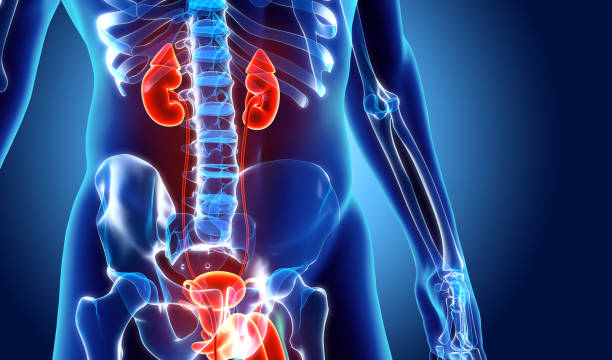
At Sharda Care - Healthcity , we offer specialized care in Urologic-Oncology, dedicated to diagnosing and treating various Urologic Cancers, including those affecting the Kidneys, Bladder, Prostate, Testicles, Adrenal Glands, and other Genito-Urinary Organs.
With a focus on Cancer Management, our Urologic Oncologists utilize the latest advancements in technology and treatment modalities to ensure that each patient receives the best possible care and outcomes. We specialize in minimally invasive procedures such as Robotic Surgery and Laparoscopic Surgery, which not only enhance the effectiveness of Cancer Treatment but also promote better functional outcomes for patients. At Sharda Care - Healthcity , we are committed to providing comprehensive care and personalized treatment plans tailored to each patient's unique needs.
Types
1. Bladder Cancer
The Bladder, a Vital Organ located in the Lower Abdomen, serves as a reservoir for Urine produced by the Kidneys during Blood Filtration. Comprising an Elastic and Muscular Wall, the Bladder expands and contracts to accommodate and expel Urine through the Urethra. Bladder Cancer originates in the inner layer of the Bladder and can progress into the Bladder Walls, posing challenges in treatment.
Types of Bladder Cancer
Bladder Cancer is categorized based on the cellular composition. The primary types include:
- Transitional Cell Bladder Cancer: Accounting for approximately 90% of Bladder Cancers, Transitional Cell Carcinoma originates from Urothelial Cells lining the Bladder. When confined to the Bladder lining, it is termed non-invasive Bladder Cancer.
- Squamous Cell Bladder Cancer: Arising from Thin, Flat Squamous Cells, this type of Bladder Cancer may develop following prolonged Infection or Irritation. Although less common than transitional Cell Carcinomas, they can exhibit aggressive behaviour.
- Adenocarcinoma: This form of Bladder Cancer Emerges from the Inner Bladder Lining due to Chronic Irritation and Inflammation. Adenocarcinomas tend to display aggressive characteristics.
2. Prostate Cancer
Prostate Cancer stands as the most prevalent Cancer among men in Western countries and ranks second in incidence among Males in India. While Postate Cancer is the second leading cause of Cancer-related Deaths in Men, following Lung Cancer, advancements in awareness, screening, and treatment modalities have substantially improved survival rates.
The Prostate, a Gland about the size of a walnut, resides in the Male Reproductive System, positioned just below the Bladder and in front of the Rectum. Enveloping part of the Urethra, it plays a crucial role in Semen Production and Sperm Nourishment. The development of the Prostate begins during Fetal growth and continues under the influence of Male Hormones, Primarily Testosterone, until adulthood.
Occasionally, the Prostate's region surrounding the Urethra may undergo Abnormal growth, leading to Benign Prostatic Hyperplasia (BPH). While this condition can impede Urinary flow and require treatment, it does not signify Prostate Cancer.
With heightened awareness, regular screening, and advancements in therapeutic interventions, the survival rate for Prostate Cancer has seen remarkable improvement. Early detection significantly enhances treatment success rates, with a five-year survival rate reaching approximately 95% for early-stage Prostate Cancer. Moreover, the successful treatment enables patients to resume normal life activities with favourable outcomes.
In some cases, Prostate Cancer may exhibit indolent behaviour, posing a minimal threat to a man's life. In such instances, observation rather than immediate treatment may be a viable approach, ensuring tailored management based on individual circumstances.
3. Kidney Cancer
The kidneys play a crucial role in maintaining the body's overall health by filtering waste from the Blood and Expelling it as Urine. Kidney Cancer, also known as Renal Cell Cancer (RCC), occurs when Abnormal Cells in the Kidney begin to multiply uncontrollably, forming a Tumor that can be malignant (Cancerous) or, in rare cases, benign (Noncancerous). Typically, Kidney Cancer originates in the Lining of the Kidney's Tubules, which are responsible for absorbing Nutrins and regulating water levels. This type of Cancer is referred to as Renal Cell Carcinoma.
Fortunately, Kidney Cancer is often detected early, facilitating prompt and effective treatment. However, if left untreated, it can progress and metastasize to other Organs in the body. While Kidney Cancer can affect individuals of any age, it is more commonly diagnosed in older adults. The average age of diagnosis is around 64, with a significant number of cases occurring between the ages of 65 and 74. Although rare, recent screening initiatives have identified instances of Kidney Cancer in individuals under the age of 45.
Causes
The precise cause of Urological Cancer remains uncertain, but several risk factors have been identified, including:
• Genetic Mutations
• Smoking
• Infection with Schistosoma Haematobium
• Occupational exposure to Polycyclic Aromatic Hydrocarbons
• Using tap water that has Arsenic, Chlorine, or Chlorination residues in it;
• Family history of Urological Cancer
• Advancing Age
• Gender (Men are at more than double the risk compared to Women)
• Obesity
• Hypertension
• Prolonged Renal Dialysis and advanced Kidney disease
Common Symptoms
Symptoms of Urological Cancer can vary depending on the affected organ. Some common signs include:
• Haematuria (Blood in the Urine)
• Erectile Dysfunction
• Lower Back Pain
• Painful or Frequent Urination
• Blood at the opening of the Penis
• Anaemia
• Loss of Appetite and Weight Loss
• Hypertension
• Swelling in Ankles and Legs
• Breast Tenderness or Growth in Men
• Changes in Testicular Size or Hardness.
• Pain in the Scrotum or Testicles
• Disturbed Urine Flow
• Lump or Cyst near the Penis or Testicle
Diagnostics
Urologists employ various diagnostic procedures to assess the severity and extent of Cancer, including:
- X-ray
- Prostate-Specific Antigen (PSA) test (for Prostate Cancer Staging)
- Core Needle Biopsy
- Magnetic Resonance Imaging (MRI)
- Computed Tomography (CT) Scan
- Angiography
- Positron Emission Tomography (PET) Scan
Treatments
Treatment options for Urological Cancers are Varied, Tailored to individual needs, and influenced by factors such as Cancer type and stage. They include:
- Surgery: Surgery is often the primary treatment for Urological Cancers. Different Surgical procedures may be performed, including Prostatectomy (Removal of the Prostate Gland), Radical Cystectomy (Removal of the Bladder), Radical Orchiectomy (Removal of the affected Testicle), and Partial or Total Penectomy (Partial or Complete removal of the Penis).
- Chemotherapy: Chemotherapy drugs are used to destroy or control Cancer Cells. They may be prescribed alongside Surgery or Radiation Therapy to alleviate symptoms and target advanced Cancer.
- Radiation Therapy: Radiation therapy involves the external administration of X-rays to destroy Cancer Cells or the placement of Radioactive materials near the malignant area. This treatment option aims to Shrink Tumours and prevent Cancer spread.
- Hormonal Therapy: Also known as Androgen Deprivation Therapy, Hormonal Therapy is commonly used to treat advanced Prostate Cancer by reducing Testosterone Production, which fuels Cancer growth.
- Targeted Therapy: This precision Cancer treatment directs drugs to specific features of Cancer Cells, inhibiting their growth or preventing the formation of new Cancer Cells. It relies on advanced Genomic Testing and other Diagnostics to determine its effectiveness, Sparing Normal Cells from the damage associated with traditional Chemotherapy.
Immunotherapy: Drugs that are used in Immunotherapy make the body's Immune System go after and Kill Cancer Cells. By making the Immune System work harder, these drugs help the body find and Kill Cancer Cells, which is a hopeful way to treat Urinary Cancer.






